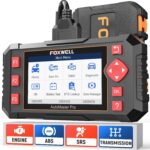The world of automotive diagnostics is increasingly reliant on advanced scanning tools, and Launch scanners, particularly the X431 series, have garnered significant attention for their comprehensive capabilities. For professionals and enthusiasts in regions with diverse vehicle imports, like the Caribbean Islands, finding reliable Launch Car Scanner Suppliers is crucial. However, the market is not without its complexities, particularly concerning authenticity and regional compatibility.
A key point of confusion arises when considering the supply chain. If Launch, a brand with a significant presence in the USA (“Launch USA”), states that certain scanner models are primarily intended for the Chinese market and not explicitly designed for US vehicles, where exactly does “Launch USA” source their inventory? Manufacturing is largely based in China, raising questions about the origin of units available through various channels.
This leads to another pertinent question: how do “unauthorized” vendors on platforms like Amazon and eBay manage to secure enough Launch scanner units directly from Chinese factories to sustain their operations? Despite this apparent access to supply, these vendors often lack official certified seller status. This situation creates uncertainty for buyers, especially those outside the US market.
The appeal of Launch scanners is undeniable, especially for those working with diverse vehicle fleets. In regions like the Caribbean, which see a high volume of Japanese Domestic Market (JDM) vehicles and Asian imports built for different regulatory environments than the US or Europe, OBD-II compatibility can be inconsistent. A scanner that works flawlessly on a US-spec vehicle might fail to communicate with an Asian import in these regions. Many have learned this the hard way, purchasing scanners advertised for “Asian vehicles” on major online marketplaces, only to find they are incompatible with their local vehicle stock. This has resulted in considerable wasted expenditure.
It’s plausible that some online vendors are indeed selling genuine Launch tools. However, the critical issue may be software regionalization. The software embedded in these scanners might be tailored to specific markets. Therefore, a genuine Launch scanner purchased from a non-official source, while physically authentic, could have software limitations that make it unsuitable for vehicles outside its intended region.
To navigate this complex landscape of launch car scanner suppliers and ensure successful diagnostics, sharing experiences is paramount. By openly discussing our encounters with different suppliers and scanner models, particularly in non-US markets, we can collectively build a clearer picture of which sources are reliable and how to avoid compatibility pitfalls. This shared knowledge will be invaluable in making informed purchasing decisions and maximizing the effectiveness of Launch diagnostic tools across diverse global vehicle markets.

